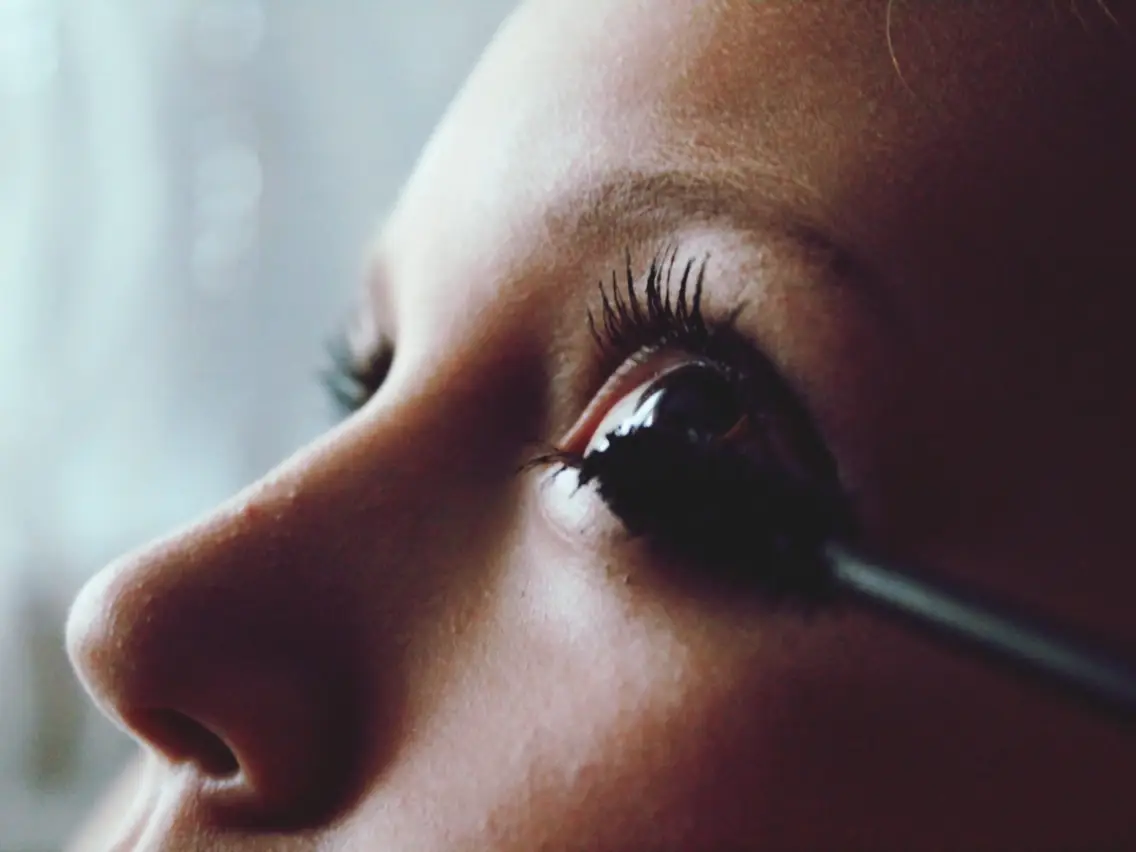Waterproof mascara is a beauty essential for many, offering long-lasting wear even through tears, rain, or intense workouts. It’s a savior for people who don’t want their mascara running down their face or smudging throughout the day. However, what many people don’t realize is that this popular beauty product may pose certain risks. From its tough-to-remove formula to potentially harmful chemicals, waterproof mascara can introduce dangers that are largely overlooked.
This article will dive into the hidden dangers of waterproof mascara, breaking down how it can affect your eye health, skin, and even the environment. Read on to learn more about the hazards that this beauty staple may pose.
What Is Waterproof Mascara?
Waterproof mascara is specially designed to resist moisture, allowing users to wear it in humid conditions, while swimming, or during emotional moments without worrying about smudging. The key ingredient that makes it waterproof is usually a combination of synthetic polymers and waxes, which create a film over your lashes. This coating repels water and moisture, ensuring that the mascara stays in place for long periods.
While it’s convenient, these ingredients also make the product significantly more difficult to remove than regular mascara. The very properties that make waterproof mascara effective are also what make it potentially hazardous.
The Ingredients Behind Waterproof Mascara
Understanding the dangers of waterproof mascara begins with knowing what ingredients are in it. Many waterproof mascaras contain a variety of chemicals and synthetic substances that help create their long-lasting effect. Some of these chemicals include:
- Parabens: These are preservatives that prevent bacteria from growing in cosmetics. However, parabens have been linked to hormone disruption, potentially mimicking estrogen in the body, which could increase the risk of certain cancers, including breast cancer.
- Petroleum Distillates: Found in many waterproof mascaras, petroleum distillates are derived from oil and are known to irritate the eyes and skin.
- Silicones: Silicones help create the smooth texture and water-repellent finish of waterproof mascara. Though generally considered safe for external use, prolonged exposure can lead to buildup on the lashes, causing them to become brittle and prone to breakage.
- Synthetic Dyes and Fragrances: Some waterproof mascaras contain synthetic dyes and fragrances that can cause allergic reactions or sensitivities, especially for people with sensitive eyes or skin.
- Formaldehyde-releasing agents: Some waterproof formulas contain ingredients that release formaldehyde, a known carcinogen, over time.
Waterproof Mascara and Eye Health
While waterproof mascara might give you flawless lashes, it can negatively impact your eye health in several ways. The eyes are one of the most sensitive parts of the body, and using waterproof mascara regularly can expose them to irritation, dryness, and even infection.
1. Risk of Eye Irritation
One of the primary concerns with waterproof mascara is the risk of eye irritation. The formula’s long-lasting and water-repellent properties mean that it stays on your lashes for longer, but this also increases the chance of chemicals irritating the delicate skin around your eyes.
Eye makeup, including mascara, can introduce foreign particles into your eyes, and waterproof formulas are particularly stubborn. The ingredients in these mascaras can cause your eyes to become red, itchy, or watery, especially if you have sensitive eyes or wear contact lenses.
2. Increased Risk of Eye Infections
Waterproof mascara is tough to remove, and if it isn’t entirely taken off at the end of the day, it can build up on your lashes. This buildup can clog hair follicles, creating an environment ripe for bacterial growth. Bacteria can cause a range of infections, including:
- Conjunctivitis (Pink Eye): This infection causes redness, swelling, and a discharge in the eye. Mascara buildup can increase the risk of developing conjunctivitis, especially if you frequently rub your eyes while wearing it.
- Blepharitis: This is an inflammation of the eyelids caused by blocked oil glands. The thick film left behind by waterproof mascara can exacerbate this condition.
3. Dryness and Brittle Lashes
Waterproof mascara’s stubborn nature means you need to use more aggressive makeup removers to get it off. Many makeup removers formulated for waterproof products contain alcohol, oils, or other harsh ingredients that strip away moisture from your lashes, leaving them dry and brittle. Over time, your lashes can become weak and more prone to falling out.
The natural oils produced by your eyelids nourish your lashes and keep them healthy. Waterproof mascara, however, can block this natural oil flow, leaving your lashes more susceptible to breakage.
Difficult Removal Process
Removing waterproof mascara is notoriously difficult. While this is one of its key selling points, the effort required to remove it can cause damage to your lashes and skin. Scrubbing or pulling at your eyelashes to remove waterproof mascara can lead to lash loss and even damage the delicate skin around your eyes, causing premature wrinkles.
1. Tugging and Rubbing
When trying to remove waterproof mascara, many people resort to harsh scrubbing, tugging, or rubbing at their lashes, which can damage both the lashes and the sensitive skin around the eyes. The more you tug on your lashes, the more likely they are to fall out or break, leading to sparser lashes over time.
2. Damage to Skin
The skin around your eyes is incredibly delicate and thinner than most other parts of your body. Rubbing this area too vigorously to remove waterproof mascara can cause microtears in the skin, leading to irritation, redness, and potentially long-term damage like fine lines and wrinkles.
3. Dependence on Harsh Makeup Removers
Waterproof mascara typically requires a specialized makeup remover, usually an oil-based one. While these removers are effective at breaking down the tough waterproof formula, they often contain chemicals that can be irritating to the skin and eyes. Frequent use of such removers can strip the skin of its natural oils, leaving it dry and irritated.
Allergic Reactions and Sensitivity
Certain ingredients found in waterproof mascaras, such as preservatives, dyes, and fragrances, can trigger allergic reactions. People with sensitive eyes or skin are particularly prone to experiencing issues like redness, itching, and swelling after using waterproof mascara.
1. Fragrance Allergies
Many waterproof mascaras contain added fragrances to mask the chemical smell of their ingredients. However, these fragrances can trigger allergies or sensitivities in some individuals. Fragrance allergies can cause contact dermatitis, which manifests as red, itchy, and inflamed skin around the eyes.
2. Allergic Conjunctivitis
Waterproof mascara can also lead to allergic conjunctivitis, an inflammation of the conjunctiva (the clear membrane covering the white part of your eyes). This condition is caused by an allergic reaction to certain ingredients in the mascara and can result in red, itchy, and watery eyes.
Environmental Concerns
Aside from the personal health risks, waterproof mascara also poses environmental concerns. Many waterproof mascaras contain microplastics, which are non-biodegradable particles that can find their way into waterways when you wash off your makeup. These microplastics contribute to water pollution and can have harmful effects on marine life.
Furthermore, the synthetic chemicals used in waterproof mascara, such as silicones and parabens, can also negatively impact the environment. When these chemicals are washed down the drain, they can accumulate in water systems, potentially harming aquatic ecosystems.
Alternatives to Waterproof Mascara
While waterproof mascara may seem like a must-have for some, the risks associated with it suggest that it’s worth considering alternatives. Here are a few safer and more environmentally friendly options:
1. Water-Resistant Mascara
If you still need some level of moisture resistance, water-resistant mascara is a safer alternative. It’s easier to remove than waterproof mascara and generally contains fewer harsh chemicals. While it may not hold up against a heavy downpour or a swim, it will last through a humid day or light sweating.
2. Tubing Mascara
Tubing mascaras use polymers that form tiny tubes around your lashes rather than coating them with pigment. These tubes are water-resistant but can be easily removed with warm water and gentle pressure. Tubing mascaras are also less likely to cause irritation or buildup.
3. Natural and Organic Mascaras
There are many natural and organic mascara options available that avoid harmful chemicals like parabens, silicones, and synthetic dyes. These mascaras may not be as long-lasting as waterproof formulas, but they are safer for both your health and the environment.
How to Safely Remove Waterproof Mascara
If you do choose to wear waterproof mascara, it’s essential to remove it properly to minimize damage to your lashes and skin. Here are some tips for safe removal:
- Use an Oil-Based Makeup Remover: Oil-based removers are best for breaking down the waterproof formula without the need for excessive rubbing or tugging. Apply the remover to a cotton pad and press it against your closed eyes for a few seconds to dissolve the mascara before gently wiping it away.
- Avoid Harsh Scrubbing: Be gentle when removing your mascara. Avoid rubbing or pulling at your lashes to prevent lash breakage and skin damage.
- Condition Your Lashes: After removing your mascara, consider applying a lash serum or a natural oil like coconut or castor oil to nourish and strengthen your lashes.
- Give Your Lashes a Break: Consider giving your lashes a break from waterproof mascara every now and then to prevent long-term damage and allow your lashes to recover.
Bottom Line
Waterproof mascara, dangers of waterproof mascara, waterproof mascara ingredients, eye irritation from mascara, mascara and eye infections, allergic reactions to mascara, removing waterproof mascara, mascara and lash damage, brittle lashes from mascara, waterproof mascara removal, formaldehyde in mascara, parabens in mascara, silicone in mascara, petroleum distillates in mascara, environmental impact of mascara, microplastics in mascara, fragrance allergies from mascara, conjunctivitis from mascara, blepharitis from mascara, mascara alternatives, water-resistant mascara, tubing mascara, natural mascara, organic mascara, mascara for sensitive eyes, how to remove waterproof mascara, harsh chemicals in mascara, makeup remover for waterproof mascara, lash loss from mascara, mascara and skin damage, waterproof mascara risks, eye health and mascara, mascara and wrinkles, safe mascara options.




